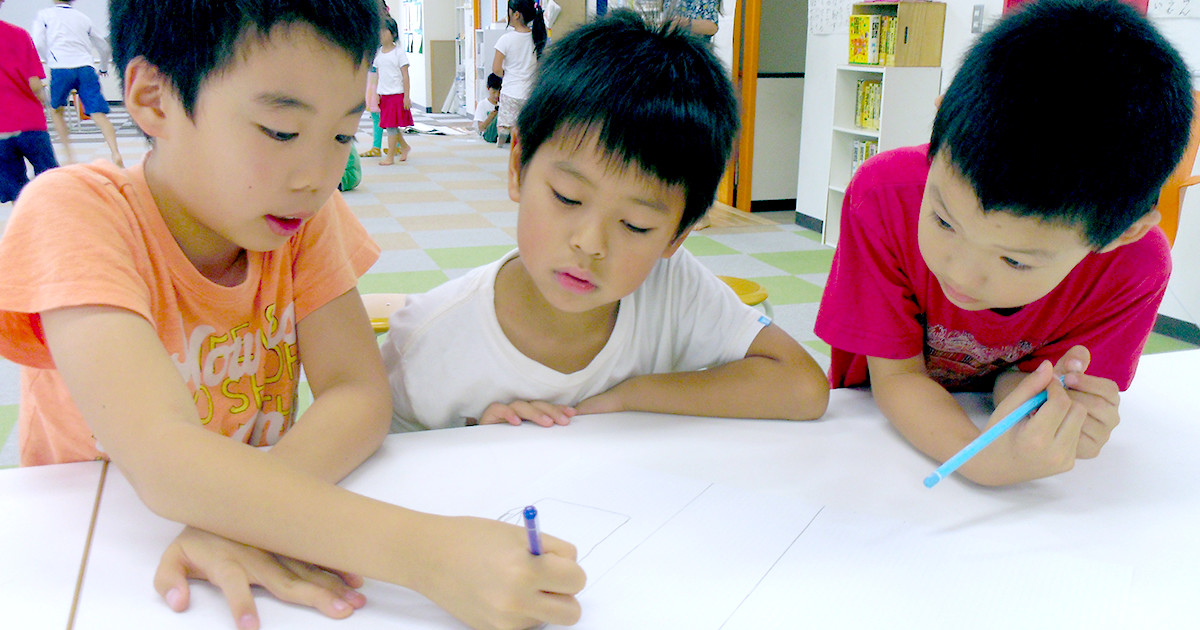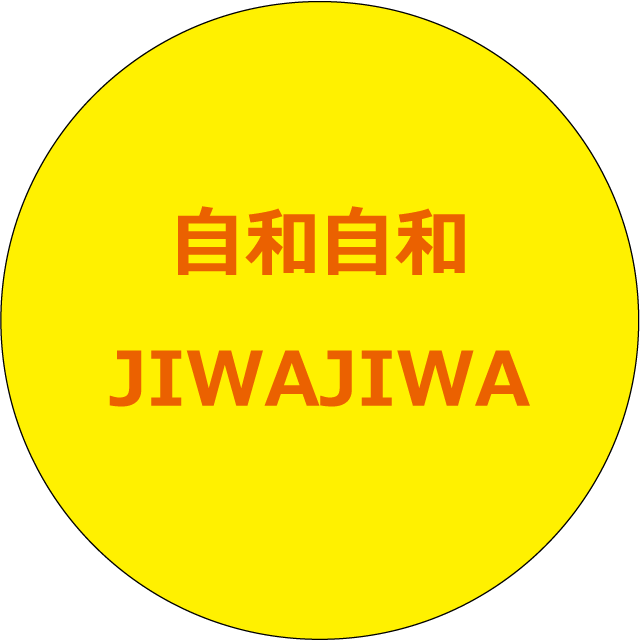自和自和 – read “jiwa jiwa”* – describes our core value of children being true to themselves, celebrating connection and harmony with others and the environment, and learning and growing together.
The character “自” (“ji”, or“self”) symbolizes valuing oneself (自愛), learning through one’s own volition (自発), self-control (自律), believing in one’s potential and ability (自信), and nurturing a free mind (自由).
The character “和” (“wa”, or“harmony”) symbolizes valuing harmony between oneself and others (親和), valuing harmony within the given social or natural environment (調和), recognizing the value of learning in a harmonious environment (温和), and striving for harmony and understanding between people of different cultures and backgrounds (平和).
As these characters are laid repeatedly, side by side (“jiwa jiwa”), we see in that repetition precisely the ideal process that children go through in their learning: to take steps, no matter how small, toward growth in a harmonious, supportive environment.
* “Jiwa jiwa”, the sound alone, is also the onomatopoeia for something that spreads or permeates slowly, but steadily and deeply. The two kanji characters have been combined to make this particular sound.



